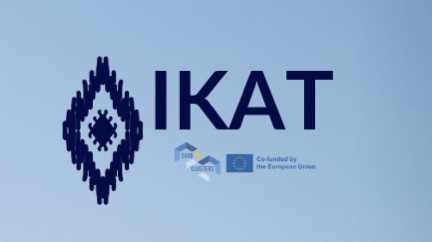The Balearic Islands and Cantabria
- IKAT PROJECT
- Jul 14, 2023
- 4 min read
The Balearic Islands and Cantabria join forces to explore and enhance coastal resources for the energy transition.
The Vice President and Minister of Energy Transition, Productive Sectors and Democratic Memory, Juan Pedro Yllanes, discussed on Tuesday with Cantabria, the maritime clusters of both autonomous communities, Ocean Renewable Energy and the UIB, the potential of coastal territories and their resources in terms of boosting the energy transition.
Yllanes, who has inaugurated the seminar "Reduction of energy costs for the application of new technologies", has explained that the Balearic Islands have a specific item of 30 million euros within the Investment Plan for the Energy Transition (PITEIB) for decarbonization of the sea and the promotion of innovative projects and tractors that contribute to decarbonizing the economy.
«We are clear that the commitment to photovoltaic energy is not enough for us, but, just as with the economy it is important to bet on diversification, it is also important for our energy model. At this point our commitment to marine energy such as wind and wave energy enters the scene", Yllanes pointed out, while acknowledging that "our ports also have great potential". "We are seeing how pioneering projects are emerging in some places and we want all the ports of the autonomous community to be able to incorporate forms of energy generation through waves or wind," he stated.
In this sense, the vice president has valued the projects promoted by the Maritime Cluster together with research groups from the University and Ocean Renewable Energy. «They represent an opportunity for these emerging research groups related to the energy transition of the Islands. Energies that will help us complete the energy transition roadmap that we are promoting, thus incorporating new photovoltaic technologies that do not see their production interrupted by the available hours of sunshine. An ideal complement to explore and promote in these regions that we have these coastal resources, as is Cantabria as well”, the vice president has sentenced.
The seminar was also attended by the General Director of Energy Transition and Climate Change, Pep Malagrava; the General Director of Industry, Energy and Mines of the Government of Cantabria, Daniel Alvear; the president of the Maritime Cluster of the Balearic Islands, Iolanda Piedra; the president of the Maritime Cluster of Cantabria, Juan Luis Sánchez; the CEO of Renewable Ocean Energy, Antonio Cañellas, and Jaume Carot, rector of the Universitat de les Illes Balears.
Malagrava has pointed out that “the Balearic Islands must lead the projection of marine renewables, and projects such as the renewable energy in ports promoted by the Maritime Cluster of the Islands is a model to follow to decarbonise one of the highest emission points such as ports. In addition, this energy may reduce the emissions of ships that dock and stop having their fossil engines running to be able to plug in the port and consume 100% renewable energy.
For his part, the General Director of Industry, Energy and Mines of the Government of Cantabria, Daniel Alvear, has asserted that “in terms of marine renewables, Cantabria has an outstanding track record. The director of Cantabrian Industry has valued the technological capacity of Cantabrian companies and clusters linked to marine renewables and the maritime sector. In addition, in the field of clean marine energy, Alvear has put on the table the history of collaboration between Cantabria and other autonomous communities of Green Spain, through the Atlantic Wind Supercluster. "We want to transfer this same model of collaboration between administrations with the Government of the Balearic Islands and thus promote industrial synergies that allow the development of unique projects in this area", Alvear pointed out.
Iolanda Piedra, president of the Maritime and Logistics Cluster of the Balearic Islands, highlighted at the meeting: “if one of the most polluting sectors must be pointed out, energy is one of them. It is only necessary to remember some official data in this regard, which indicate that CO2 emissions from this sector represent about 65% of the total greenhouse gases in the atmosphere, caused by human activities. Some estimates suggest that approximately 40% of total CO2 emissions are attributed to the energy sector and, according to data from Red Eléctrica Española, the Spanish energy sector emitted the equivalent of 54.1 million tons of CO2 last year”.
During the seminar, the Maritime and Logistics Cluster of the Balearic Islands proposed a pilot test in Cantabria to generate renewable energy from seawater. Thus, he explained the possibility of specifically addressing the viability of the first pilot experience of the ROE (Renewable Ocean Energy) project in Cantabria, together with the Cantabria Maritime Cluster and the autonomous governments of the Balearic Islands and Cantabria.
For his part, Juan Luis Sánchez, president of the Maritime Cluster of Cantabria - MarCA has assured that: "Cantabria is also taking a path that is firmly committed to innovative renewable energies." The president highlighted the firm commitment of the maritime sector of the Cantabrian community to decarbonisation through the use of alternative energies, citing the renewable energy project through green hydrogen and ammonia, Green Hydrogen Cantabria, as an example. "Wave energy is an opportunity to add capabilities to our community to achieve sustainability goals," said Sánchez.
ROE is a pioneer project in the market in technology for the generation of renewable energy through the wave force generated by the waves of the sea. The initiative is part of the bank of projects promoted by the Maritime and Logistics Cluster of the Balearic Islands, to give a real response to the political recommendations included in its Bluefasma initiative and recently presented to the European Commission.




